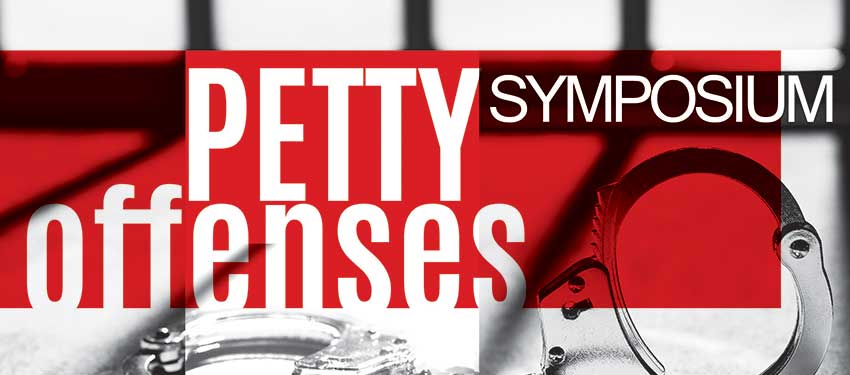University of Miami School of Communication faculty are collaborating with the School of Law and the Human Rights Clinic (HRC) in hosting a communication workshop ahead of the HRC’s Petty Offenses Symposium, which will take place on September 20-21. Petty offenses are laws written with the intention of bringing order to communities, and include minor crimes such as jaywalking and loitering. Unfortunately, charges for these minor offenses are disproportionally used to persecute the poor, people of color, and other marginalized groups worldwide.
The Petty Offenses Symposium brings together an international delegation of more than 50 stakeholders – including many from across continental Africa, U.S., Europe, and the Caribbean – to discuss strategies on combating the inconsistent application of these laws. The Petty Offenses Communication Workshop will take place on Thursday, September 19, in the SoC’s Koenigsberg and Nadal Interactive Media Center, during which about 30 invited members from this international delegation will be taught techniques to communicate their message effectively.
Lien Tran, assistant professor, is co-organizing the workshop with David Danzig of the Open Society Foundations (OSF), Louise Ehlers of OSF’s Human Rights Initiative, and Tamar Ezer of UM’s HRC. In the morning, David Danzig and Mark Horvarth from Invisible People will lead training on how to tell stories when communicating to the media, such as forming responses as a narrative. Tsitsi Wakhisi, associate professor of professional practice, and Sanjeev Chatterjee, professor, will assist with mock interviews of the advocates to give them hands-on training and feedback on how to speak with the media. In the afternoon, Tran will run a design thinking workshop engaging these stakeholders to identify shared key messages, consider how to humanize the issue of petty offenses, and begin strategizing which communication platforms and techniques are useful for their particular context. Ed Talavera, professor, along with a team of student filmmakers, will film members of the symposium’s international delegation talking about petty offenses as a global issue and will create a short video to be used by OSF and its network of petty offenses advocates.
Tran will also moderate Creative Campaigning to Address Petty Offenses at the Petty Offenses Symposium on Saturday, September 20, with a panel featuring Mark Horvath, founder of Invisible People; Harsh Mander, human rights and peace worker, India; and Shilpa Phadke from the Tata Institute of Social Sciences in India. The Petty Offenses Communication Workshop runs Sept. 19 and is by invitation only. The Petty Offenses Symposium is free and open to the public and will be held Sept. 20-21. Both events are supported by OSF.
To learn more about the Petty Offenses Symposium, please visit https://www.law.miami.edu/academics/continuing-legal-education-cle/petty-offenses-symposium.







